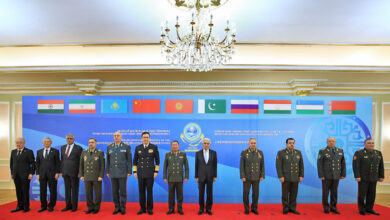Decoding UK and its Indo-Pacific strategy
- Author Ashok Tandon examines the construct in his “The Reverse Swing – Colonialism to Cooperation”
- The book captures altering equation between the two countries from colonial era to the current times
- UK will focus on the Pacific, not to replicate security strategy like the US
By K V Prasad
 Amid the growing strategic importance of countries’ approach to the Indo-Pacific construct, the absence of any formal document by the United Kingdom, whose focus remains on the Pacific, was underscored in a book on the altering landscape of India-UK relations from the colonial era.
Amid the growing strategic importance of countries’ approach to the Indo-Pacific construct, the absence of any formal document by the United Kingdom, whose focus remains on the Pacific, was underscored in a book on the altering landscape of India-UK relations from the colonial era.
“Despite the IR’s (British Integrated Review) extensive references to the Indo-Pacific regions, the United Kingdom has not released an Indo-Pacific strategic document, in contrast to the other major European countries, Moreover, Britain’s commitments are mostly in the Pacific in respect to the Five Power Defence Agreements with the ASEAN countries and the recently concluded AUKUS deal”, noted author Ashok Tandon in his book “The Reverse Swing – Colonialism to Cooperation”.Union Minister Hardeep Singh Puri released the book earlier this week.
Mr. Tandon, who served as the Media Advisor to Prime Minister Atal Behari Vajpayee, follows developments in the United Kingdom closely since his stint as the London-based correspondent for a leading Indian news agency during the mid-1980s and 1990s.
Observing that as far as India’s approach to the Indo-Pacific is concerned, the primary theatre of operation remains the Indian Ocean, for the UK its tilt would largely remain towards the Pacific.
Based on the study of the ‘Integrated Review of Defence, Security, Development and Foreign Policy’ published by the British Government in 2021; and, a follow-up ‘Integrated Review Refresh’ released this March by British Prime Minister Rishi Sunak, the author concludes the latter was in response to a “more contested and volatile world”. It draws upon the latest developments in the form of the Russia-Ukraine conflict, rising tensions with China and the energy crisis.
Juxtaposing the contours of the Review and the Refresh, the chapter on “Indo-Pacific Strategy” maintained there was a note of competition in the 2021 study through stated ambitions to be the European partner with the broadest and most integrated engagement in the region. In contrast, two years later the update placed greater stress on the importance of partnership. He also draws upon other studies in the sphere for a British perspective.
The Refresh recognised the limitations to the UK and its ability to resource capabilities in the region. Instead, it draws upon the opportunity to align with allies such as France and Japan which are crafting strategies in the Indo-Pacific.
This approach in the author’s assessment “…makes it clear that the UK will look to pursue an increasingly collaborative approach in the region”. At the same time, he surmises that not all countries in the Indian Ocean are enthusiastic about Britain’s re-invigorated presence in the region. One of India’s major issues with British presence is the ongoing disagreement between the UK and Mauritius over control of the Chagos Islands, a legacy issue since the Cold War era.
Pointing out to the Integrated Review, the chapter maintained that the document underscored that the United Kingdom’s Indo-Pacific strategy was not to replicate the security role played by the United States and India but focus on strengths such as diplomacy, coalition building and international governance.





